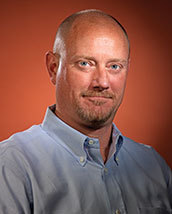A man's passing—and his industry's future
On Oct. 15, Russell Gerdin, the founder and long-time chairman and CEO of truckload carrier Heartland Express Inc., died at the age of 70. Ten days later, the company he started reported weaker-than-expected third-quarter revenues, attributing the weakness in part to tight driver availability. In a press release accompanying its financial results, Heartland noted that the trucking industry "continues to be challenged by the shrinking pool" of qualified drivers.
The intent here is not to compare a man's passing with cold, hard financial numbers. Yet those who've worked in—or reported on—this business long enough to connect the dots can spot the irony here. We couldn't help but notice that even Heartland—which has long been considered one of the best truckers to work for—was having a hard time finding enough good drivers to move its loads.
Russ Gerdin was a tough, direct, hands-on executive from the old school of trucking. In Heartland's early days, he was known to analyze every freight bill for profitability, and he would complain that his salesmen were his worst enemies because they wanted to haul customers' freight too cheaply.
At the same time, you'd be hard-pressed to find a greater champion of truck drivers, and of truck driving. As the son of a truck driver, Gerdin saw first hand from boyhood the difficulties and opportunities presented by the open road, and the value and importance of the profession.
When he founded Heartland in 1978, Gerdin made it clear he was going to hire the best drivers, pay them top-of-the-scale wages, give them modern, well-maintained equipment, and provide them with as much work-life balance as a truckload driver could realistically expect. In return, he demanded that his drivers be on time, reliable, courteous, and, above all, safe. Those who couldn't live up to his expectations were quickly culled from the fleet. Long before the federal government launched the complex driver safety grading system known as "CSA 2010," Gerdin—no fan of government regulation—essentially became a one-man CSA 2010 in his own right.
Like a successful football coach who understands that a great team is built from the trenches starting with the offensive line, Gerdin knew his drivers were the heart and soul of the company. He realized that a good driver team would not only help Heartland win and keep business, but also trigger a virtuous cycle that would attract the cream of the driver crop.
It's safe to say he'd be up in arms over recent reports of ill treatment of drivers at the hands of their employers and the shippers whose business would come to a standstill without them. Schneider National Inc., the truckload and logistics giant, conducts exit interviews with every departing driver. When outgoing employees were asked what compelled them to leave, "treatment" trumped pay in virtually every case, according to Don Osterberg, Schneider's senior vice president of safety and security. "Compensation was never higher than third on the list of reasons," Osterberg told DC Velocity at the Council of Supply Chain Management Professionals' Annual Global Conference.
There's no doubt Russ Gerdin would agree with Osterberg that the looming driver crisis is not just a trucking issue, but a supply chain issue. Odds are that Gerdin would ask a customer if it could have product ready for shipping by mid-week rather than on Friday, so his driver wouldn't have to spend the weekend away from his family. It's obvious that Gerdin would see his drivers as "talented assets" rather than as merely "labor."
And we think that Gerdin would want to modify one of the American Trucking Associations' most famous catchphrases to read: "Without drivers, America stops."
Related Articles

Copyright ©2024. All Rights ReservedDesign, CMS, Hosting & Web Development :: ePublishing